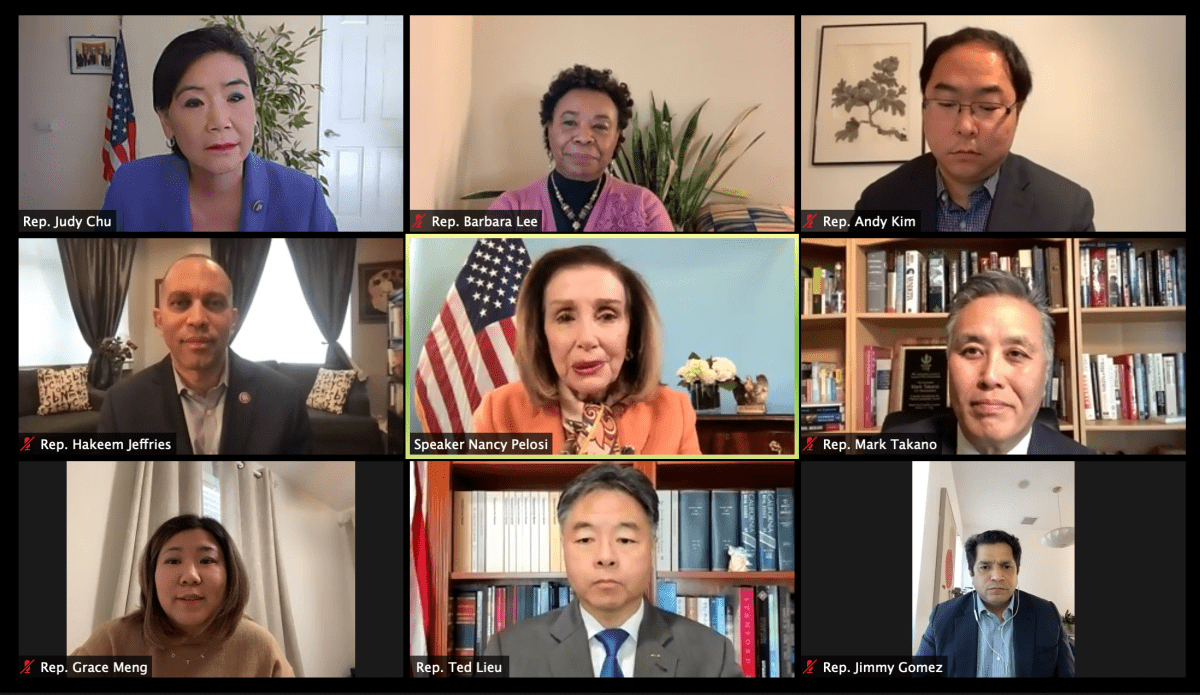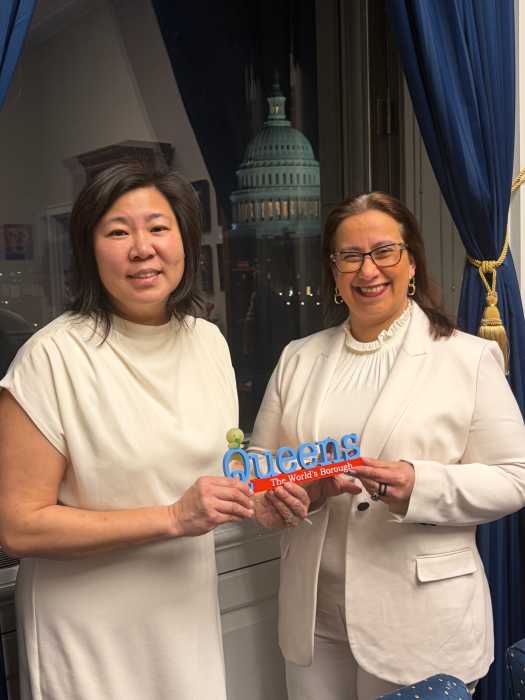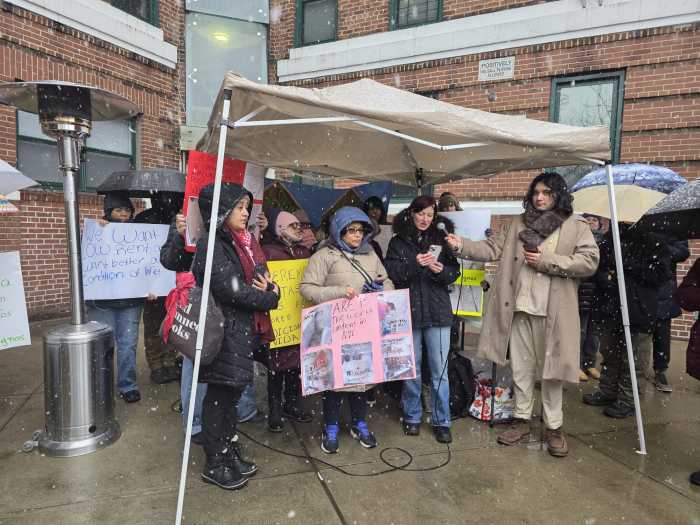Queens Congresswoman Grace Meng on Friday, Feb. 19, joined her colleagues in the Congressional Asian Pacific American Caucus (CAPAC) to denounce an alarming spike in anti-Asian hate crimes and violence across the nation, including in New York City, where four recent incidents have occurred.
Members of CAPAC were joined by the Congressional Black Caucus (CBC) and the Congressional Hispanic Caucus (CHC), collectively known as the Tri-Caucus, and Speaker of the House Nancy Pelosi for a press conference.
For over a year, the Asian American and Pacific Islander (AAPI) community has been fighting two viruses: the COVID-19 pandemic and anti-Asian hatred and discrimination, said Meng, who is calling on all communities to stand up against the attacks and report it.
“We demand this xenophobia and violence end at once. We can’t and we must not be idle. The terrorizing of Asian Americans, especially against the elderly, must stop,” said Meng, first vice chair of CAPAC. “We are better than this. Our diversity has always made us stronger. We cannot and must not lose sight of this.”
Describing the recent uptick in violence against Asian Americans, particularly against the elderly, as “horrifying,” Meng referenced an incident involving a 52-year-old Asian woman, who was allegedly shoved to the concrete ground by a man on Feb. 16 outside a Flushing bakery. Two days later, the NYPD identified the man as Patrick Mateo, who was arrested and charged with assault and harassment.
The incident comes after two separate and unrelated attacks on Asian women on the New York City subway on the very same day. Both women in their 60s and 70s reported being punched while either on the train or waiting on the platform. In another incident, a 61-year-old Filipino man’s face was slashed with a knife.
“These are our parents, our grandparents, our neighbors. These acts of violence against them are unacceptable,” Meng said. “The perpetrators of these crimes must be punished.”
Since its launch in March 2020, Stop AAPI Hate has received 2,583 reports of anti-Asian incidents nationwide. According to AAPI data, seven out of 10 incidents involved verbal harassment, which included racial slurs, name calling and profanities. Shunning, the deliberate avoidance of AAPIs because of their race, constituted 22 percent of the incidents. Physical assaults made up 9 percent of the incidents, while potential civil rights violations, including workplace discrimination and being barred from establishments and transportation, comprised 8 percent of the incidents.
Some of the victims blamed anti-Asian rhetoric from former President Donald Trump and his references to the “China virus” when discussing COVID-19.
Last year, Meng introduced a resolution denouncing all forms of anti-Asian sentiment, racism, discrimination and religious intolerance related to COVID-19. The House of Representatives passed the bill that also calls on federal law enforcement officials, working with state and local officials, to take specified steps. During his first week in office, President Joe Biden included some of Meng’s bills in his memorandum to address anti-Asian sentiment and hate crimes against AAPIs.
Pelosi acknowledged Meng’s resolution, as well as federal and local leaders’ efforts in raising awareness about the rise of attacks against Asian Americans.
“It’s starting at the top with our new president changing course on this subject. As we celebrate the Lunar New Year, a source of joy, it’s also a source of pain for us during this time because of all of these incidents. I’m proud of our president for what he’s doing, and our House Democrats and Tri-Caucus to call attention to this matter,” Pelosi said.
The lawmakers say it’s an important and positive initial step forward in tackling the issue. They are also encouraging people to document and report anti-Asian hate crimes. However, according to Meng, some people with limited English capabilities may not understand what the person is saying to them.
Rep. Mark Takano (D-Calif.) added that there needs to be a public affairs campaign in the languages that people speak, so they can understand how to report a hate crime, and pay attention to the words and language used around that crime.
The lawmakers agreed that addressing these hate crimes will take effort from all levels of government.
Moving forward, the lawmakers are emphasizing the passage of the No Hate Act that was included in the updated Hero’s Act that was passed in the House in October 2020.
The No Hate Act establishes various grants within the Department of Justice for states and units of local government to improve law enforcement activities to address hate crimes, including by improving the reporting of hate crime data to relevant national systems. It also allows a court to order, as a penalty for a violation of a federal hate crime statute, a defendant to participate in educational classes or community service related to the community harmed by the defendant’s offense as part of a supervised release.
In 1990, there was a federal law passed to require the FBI to track and tabulate hate crimes but it “doesn’t have any teeth,” according to CAPAC Chair Rep. Judy Chu (D-Calif.). The reason for this, Chu says, is because the FBI relies on local jurisdictions to submit their hate crime statistics and each jurisdiction is different in terms of what they collect. The Hate No Act would provide resources so local jurisdictions can properly train their law enforcement officers and the creation of a hate crime hotline.
Chu says the No Hate Act measure has received bipartisan support in Congress and they’re hopeful it will be passed.
“We got 14 members of Congress to support the resolution and we think it’s only a matter of fairness to be able to get this across the finishing line; after all, there are significant populations of Asian Americans in so many states, and in states that truly made a difference in this last election and we are hopeful this can happen,” said Rep. Judy Chu, CAPAC chair.



































